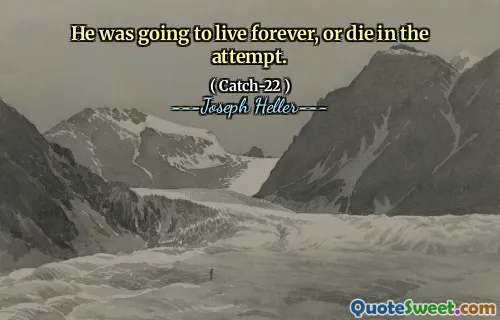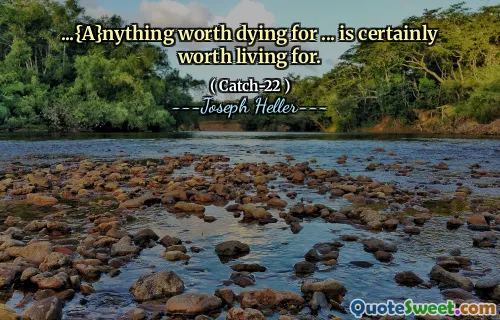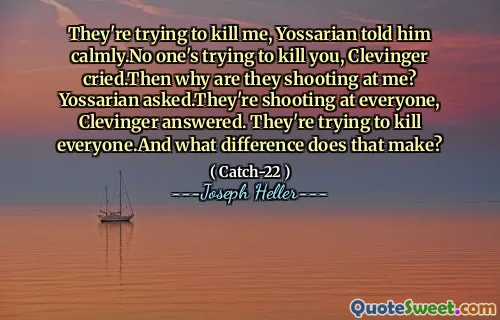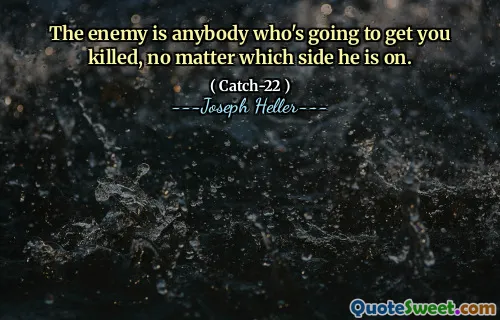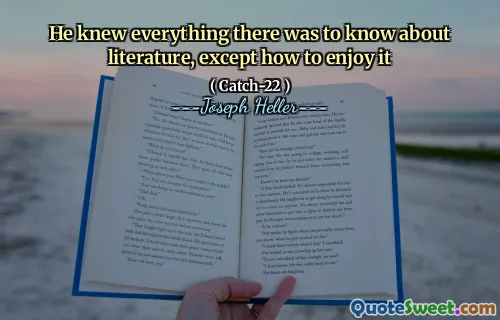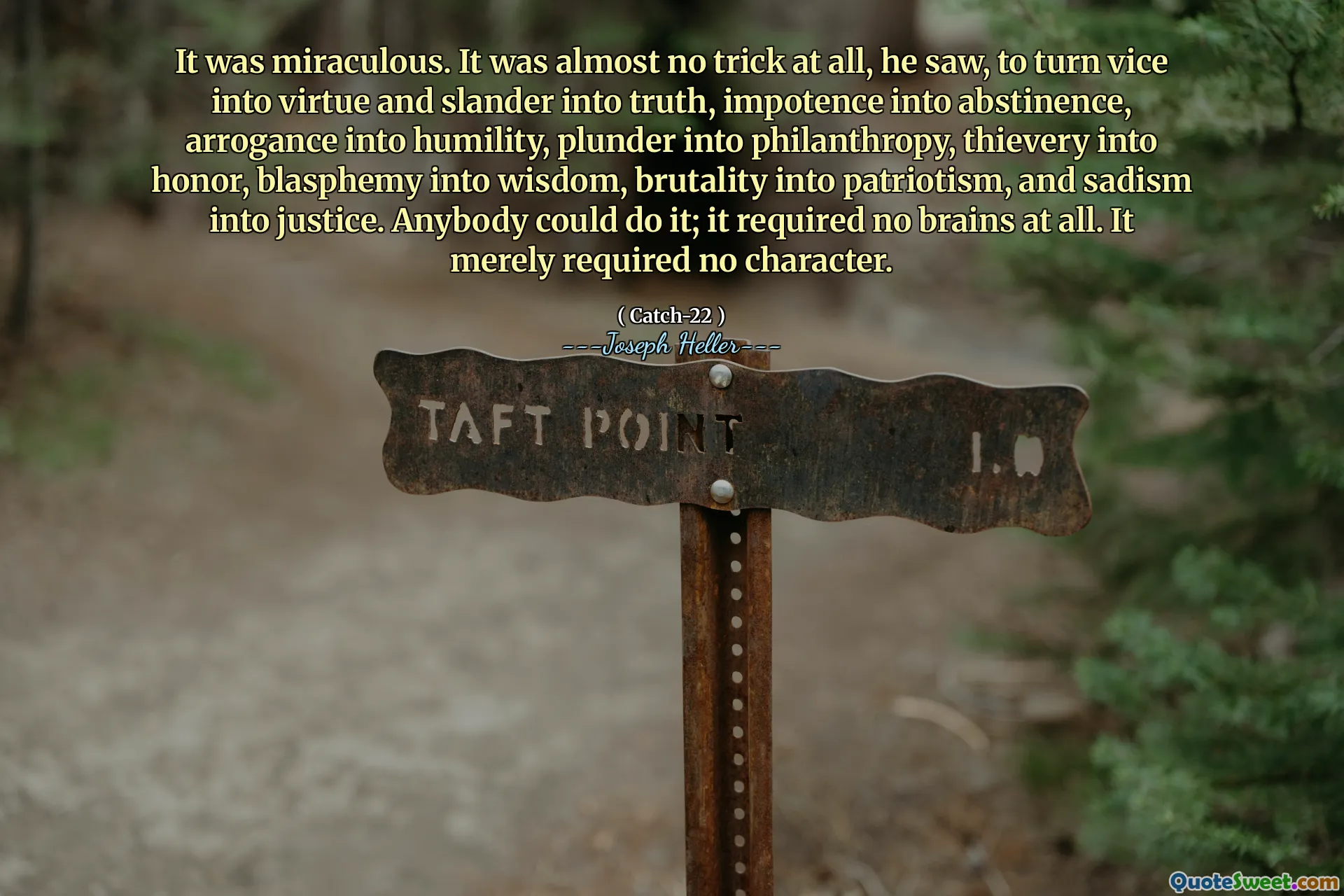
It was miraculous. It was almost no trick at all, he saw, to turn vice into virtue and slander into truth, impotence into abstinence, arrogance into humility, plunder into philanthropy, thievery into honor, blasphemy into wisdom, brutality into patriotism, and sadism into justice. Anybody could do it; it required no brains at all. It merely required no character.
In Joseph Heller's "Catch-22," the protagonist reflects on the ease of transforming morally questionable actions into seemingly virtuous ones. He observes that it requires no intelligence or skill; rather, it demands a lack of moral integrity. This observation highlights a cynical view of society, where actions traditionally viewed as wrong can be reframed to appear noble through manipulation of language and perception.
The narrative suggests that such distortions of morality are commonplace and candidly critiques the human tendency to rationalize unethical behavior. By presenting these conversions as simple to achieve, Heller underscores the absurdity and hypocrisy present in individuals and systems that prioritize appearances over genuine ethical values.
